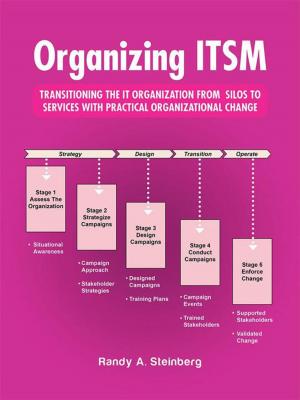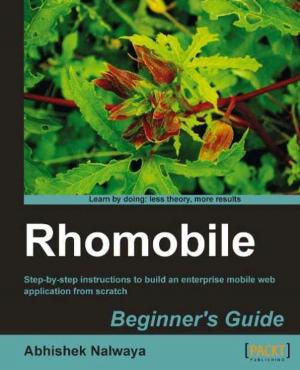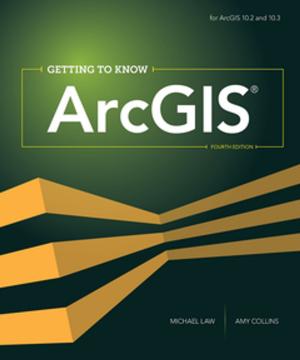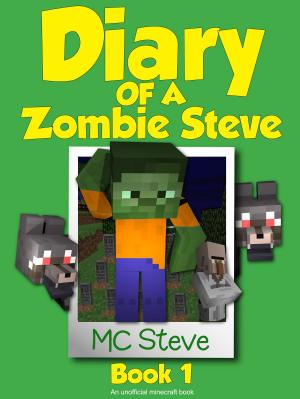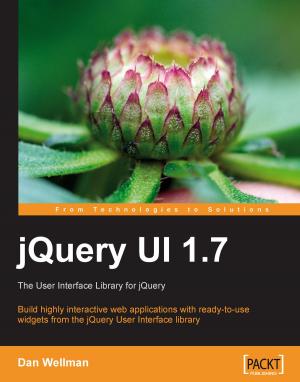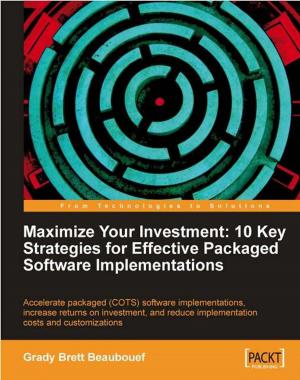Unity from Zero to Proficiency (Foundations): A Step-By-Step Guide to Creating your First Game
Unity from Zero to Proficiency, #1
Nonfiction, Computers, Entertainment & Games, Game Programming - Graphics, Reference & Language, Education & Teaching, Teaching, Computers & Technology| Author: | Patrick Felicia | ISBN: | 9781518699894 |
| Publisher: | Patrick Felicia | Publication: | May 5, 2016 |
| Imprint: | Language: | English |
| Author: | Patrick Felicia |
| ISBN: | 9781518699894 |
| Publisher: | Patrick Felicia |
| Publication: | May 5, 2016 |
| Imprint: | |
| Language: | English |
Why this book can help you to get started with Game Development
Creating your own game can be very intimidating at the start, and quite often, regardless of your experience with games, it is sometimes difficult to find the time and motivation to get over the first barriers and get started (e.g., lack of time or coding expertise).
Often, these barriers seem higher than they actually are. You may be a teacher trying to introduce games in the classroom, but with no previous coding or game development experience; maybe you are a hobbyist who would love to create interactive environments based on the games that you enjoy playing; maybe you are a student getting started with game development but you just don't know where to start or what resources to use; or maybe you have tried online video tutorials but found them disjointed.
You may be wondering: "How can I start to create my games if I have no experience of coding", or "this game engine is so complex that I just don't know where to get started".This is quite common, and you can easily overcome these issues with a step-by-step approach that gets you to progressively develop and use your skills.
This is the approach that I have used successfully over the past years to take students from a wide range of backgrounds from no knowledge of coding or game development to good levels of proficiency in Unity.
Of course, it takes some time and dedication; however, by following the techniques and suggestions described in this book, I can promise you that you will progress, regardless of your background, and become more comfortable with Unity.In this book, entitled From Zero to Proficiency (Foundations), which is the first book in the series (i.e., Foundations, Beginner, Intermediate and Advanced), you will become comfortable with Unity's interface and core features, by creating a project (with no coding involved) that includes both an indoor and an outdoor environment.
The content of each chapter is as follows:
- Chapter 1 provides general information on game engines and explains why you should use such software, and how, by using Unity more specifically, you can create games seamlessly.
- Chapter 2 takes you through the very first steps of installing Unity and becoming familiar with the interface. It will also show you the different shortcuts necessary to navigate through scenes and projects in Unity.
- Chapter 3 gets you to create and export your firstscene by combining built-in objects. You will learn how to manage objects, apply textures and colors, and transform objects to create a simple scene.
- Chapter 4 explains how you can create an indoor scene (i.e., a maze) with built-in shapes. You will also work with and manage lights in your scene to set the atmosphere and navigate through the scene with a First-Person Controller.
- Chapter 5 explains how to create an island with sandy beaches and palm trees using Unity's built-in assets. You will also drive a car and pilot a plane.
- Chapter 6 provides answers to frequently asked questions.
- Chapter 7 summarizes the topics covered in this book and provides tips for your next steps
Why this book can help you to get started with Game Development
Creating your own game can be very intimidating at the start, and quite often, regardless of your experience with games, it is sometimes difficult to find the time and motivation to get over the first barriers and get started (e.g., lack of time or coding expertise).
Often, these barriers seem higher than they actually are. You may be a teacher trying to introduce games in the classroom, but with no previous coding or game development experience; maybe you are a hobbyist who would love to create interactive environments based on the games that you enjoy playing; maybe you are a student getting started with game development but you just don't know where to start or what resources to use; or maybe you have tried online video tutorials but found them disjointed.
You may be wondering: "How can I start to create my games if I have no experience of coding", or "this game engine is so complex that I just don't know where to get started".This is quite common, and you can easily overcome these issues with a step-by-step approach that gets you to progressively develop and use your skills.
This is the approach that I have used successfully over the past years to take students from a wide range of backgrounds from no knowledge of coding or game development to good levels of proficiency in Unity.
Of course, it takes some time and dedication; however, by following the techniques and suggestions described in this book, I can promise you that you will progress, regardless of your background, and become more comfortable with Unity.In this book, entitled From Zero to Proficiency (Foundations), which is the first book in the series (i.e., Foundations, Beginner, Intermediate and Advanced), you will become comfortable with Unity's interface and core features, by creating a project (with no coding involved) that includes both an indoor and an outdoor environment.
The content of each chapter is as follows:
- Chapter 1 provides general information on game engines and explains why you should use such software, and how, by using Unity more specifically, you can create games seamlessly.
- Chapter 2 takes you through the very first steps of installing Unity and becoming familiar with the interface. It will also show you the different shortcuts necessary to navigate through scenes and projects in Unity.
- Chapter 3 gets you to create and export your firstscene by combining built-in objects. You will learn how to manage objects, apply textures and colors, and transform objects to create a simple scene.
- Chapter 4 explains how you can create an indoor scene (i.e., a maze) with built-in shapes. You will also work with and manage lights in your scene to set the atmosphere and navigate through the scene with a First-Person Controller.
- Chapter 5 explains how to create an island with sandy beaches and palm trees using Unity's built-in assets. You will also drive a car and pilot a plane.
- Chapter 6 provides answers to frequently asked questions.
- Chapter 7 summarizes the topics covered in this book and provides tips for your next steps



